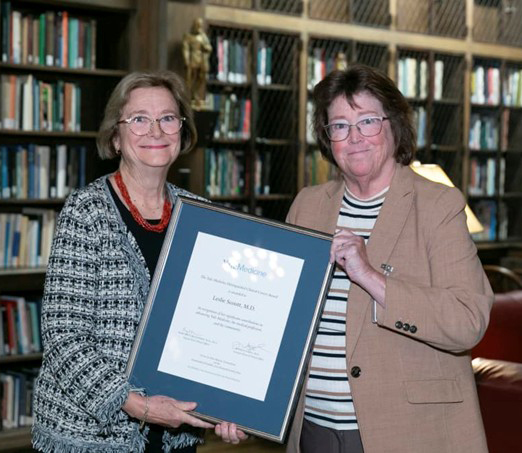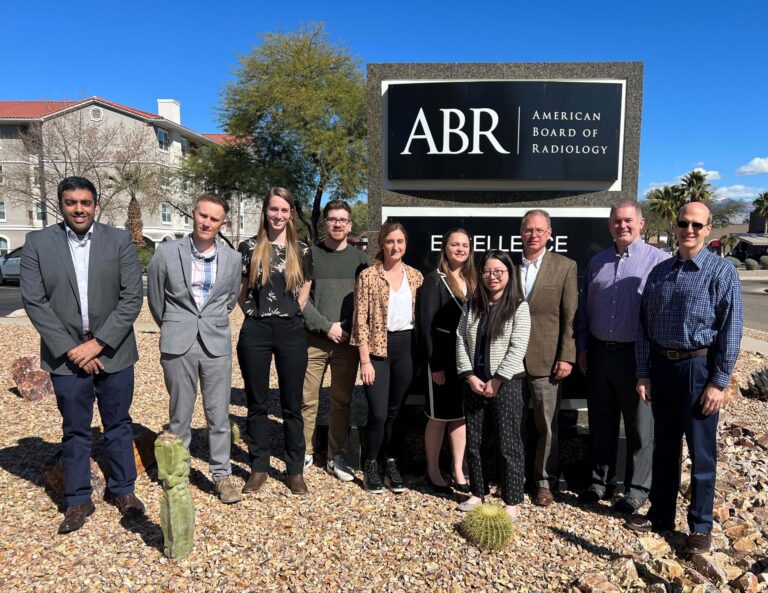From the Board of Governors: ABR Residency Leave Policy: How We Got Here
by Cheri L. Canon, MD, ABR Governor
June 2021;14(3):4

The American Board of Medical Specialties (ABMS) brings together 24 Member Boards, including the ABR, and seeks to establish certain standards across all specialties in an effort to allow the public to rely on “board certification” as a consistent credential. In July 2020, the ABMS announced that each of the Member Boards would be required to clearly define how much time off would be permitted during a residency in their respective specialties without a requirement to extend training. The ABMS policy is available here. ABR governors and trustees discussed this at length during our winter meeting. Although, as of this writing, the ABR policy is not yet finalized, we want to share the rationale of the Board for our discussions and the associated process for gathering input. We are extremely grateful to our stakeholders for engaging in this important discussion.
Based on the preliminary opinions of several academic faculty in each of the four radiology disciplines (medical physics, radiation oncology, diagnostic radiology, and interventional radiology), we distributed a draft proposal to several stakeholder groups across these disciplines and solicited broad public comment. Our early draft, based on the need to maintain a meaningful length of training in the specialty and informal assessment of historic patterns, was almost 50% more than the minimum overall time off required by ABMS. However, as we had hoped, additional perspectives were provided via discussions with trainees, program directors, and department chairs during virtual interactive sessions throughout April. In addition, dozens of comments were submitted directly to senior ABR staff and via our website. This informed our internal discussions and allowed us to refine the proposal.
Given the complexity of the issue and the broad range of inputs, it is not surprising that there was some misunderstanding of the scope of the ABR’s proposed policy.
- Some conflated it with elements of the Family and Medical Leave Act (FMLA), which, while an important element of an individual’s rights in the workplace, does not address training requirements for board certification. Our proposed policy is consistent with protections provided by the FMLA.
- Others asked if the policy would mandate a minimum time off or if we intended to mandate that leave during residency be paid; this is an institutional determination and therefore outside the ABR’s purview.
- We heard that measuring and establishing competency was more important than time served; although this has an inherently logical foundation in medical education and is a frequent topic of discussion at the ABR, it is inherently subjective. The current ABMS position requires that we specify a requisite minimum time in training; in addition, the ABR requires an attestation, by the program director, of competency and successful residency completion.
- Lastly, we have made it clear that ABR policy does not supersede local policy with regard to the amount of leave time provided, which in many cases may be more limited than our policy allows. The ABR is focused on a very specific element: how much time in training is needed as a component of eligibility for board certification.
The ABR recognizes that resident wellness and family needs are critically important, and we support reasonable levels of time off during training. We understood from program directors that both they and the trainees want flexibility (i.e., less definition from the ABR regarding how time off is categorized and when it may be taken). As a result, our policy language evolved to allow programs to make most of those decisions locally, while providing additional time off for parental, caregiver, and medical leave without requiring an extension of training.
We are grateful to the many individuals and organizations who provided thoughtful commentary on this extremely important process.



